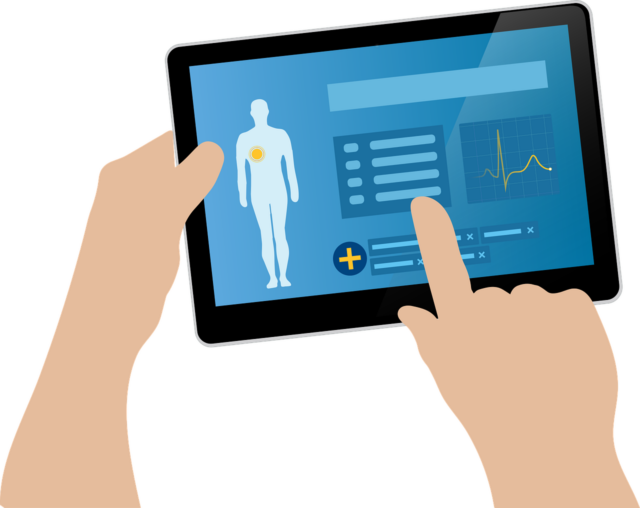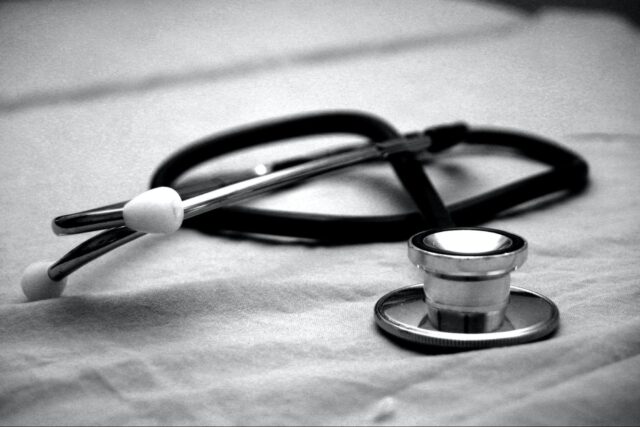
In today’s modern healthcare system, electronic health records (EHRs) are becoming increasingly important for physicians. As the technology becomes more accessible and easier to use, understanding the basics of EHR use is essential for any medical professional.
Also, (EHR) has become a crucial component of modern medical practice management software. They provide physicians with a comprehensive and organized way to store and access patient information, making it easier to provide high-quality care.
This blog post will discuss what you need to know about EHRs and why it’s important for physicians to stay updated on this technology. We will also cover some tips on how to use EHRs efficiently and effectively.
What Are Electronic Health Records (EHRs)?

Electronic Health Records (EHRs) are digital records of patient health information. This information is collected from various sources, including physicians, hospitals, labs, and pharmacies. EHRs are used to store, manage, and share patient information, to improve patient care and overall health outcomes.
EHRs can include all kinds of health data, including a patient’s medical history, medications, immunizations, lab results, imaging results, and even social and environmental factors.
They also contain the patient’s demographic information, such as name, date of birth, address, gender, and insurance provider.
Most EHRs have built-in safety features that protect patient privacy and prevent unauthorized access to their medical data. Additionally, they provide physicians with easy access to information needed to provide quality care and make informed decisions.
With EHRs, physicians can easily track changes in a patient’s health over time, allowing them to identify patterns or trends that could indicate a potential problem or disease.
EHRs provide numerous benefits to both patients and physicians. For example, they can reduce paperwork and administrative burden for physicians, allowing them to spend more time with their patients.
They can also help improve the accuracy of diagnoses, reduce medical errors, and streamline communication between different healthcare providers.
In addition, EHRs can help reduce costs associated with medical billing and processing insurance claims.
How Does Ehrs Benefit Physicians?

Electronic health records (EHRs) provide several benefits for physicians. EHRs offer a wide range of advantages that can help your practice run more efficiently and effectively, from improved clinical decision-making to streamlined processes and improved patient satisfaction.
First and foremost, EHRs enable physicians to access patient data quickly and easily, helping to improve patient care by giving doctors access to comprehensive information in an organized manner.
According to healthit.gov, Electronic information sharing among healthcare professionals can lead to more accurate diagnoses and a reduction in medical errors. This improves overall patient safety and care.
In addition, EHRs can also help physicians improve their clinical decision-making skills, as they allow physicians to review patient data in various ways, including viewing patient records over time.
Another key benefit of EHRs is the improved communication they allow between physicians and other healthcare providers. EHRs make it easier for medical teams to share data, enabling doctors to collaborate on the best treatment for their patients.
In addition, EHRs help improves patient satisfaction by allowing patients to view their health information online.
Finally, EHRs also help streamline the practice management process by automating many routine tasks, such as scheduling appointments and filing claims. This reduces paperwork and improves the efficiency of the office overall.
How Does Ehrs Benefit Healthcare Organizations?

Electronic health records (EHRs) are transforming the way healthcare organizations operate. By providing a comprehensive view of patient information, EHRs allow healthcare providers to coordinate care better, improve decision-making, and enhance overall patient outcomes.
For healthcare organizations, the benefits of using EHRs are significant. They help reduce paperwork, streamline clinical workflows, and improve staff communication. Additionally, EHRs allow organizations to easily track patient history, which can be invaluable in identifying patterns or trends in patient care.
As stated through healthit.gov, Electronic Health Records (EHRs) can greatly improve the quality of care for patients by providing healthcare organizations with accurate, up-to-date, and complete information about their patients at the point of care.
This allows quick access to patient records, leading to more coordinated and efficient care. According to healthit.gov, EHRs can help providers better manage care for patients.
EHRs also enable healthcare organizations to improve patient safety by reducing medical errors and streamlining administrative tasks. By automating scheduling and billing processes, EHRs allow staff members to focus on providing quality patient care.
Finally, EHRs allow healthcare organizations to collect, store, and analyze data from multiple sources, giving them insights into patient care that can be used to make decisions about care protocols and treatment options.
This improved data analysis can lead to improved patient health outcomes, which is the ultimate goal of any healthcare organization.
In short, EHRs provide various benefits for healthcare organizations that make it easier for them to deliver quality care to their patients.
Key Features of Ehrs for Physicians

Electronic health records (EHRs) are increasingly becoming a standard in healthcare. EHRs offer a range of features and benefits that can help streamline the workflows of physicians and other healthcare professionals.
Some key features of EHRs for physicians include:
- Automated Documentation: EHRs allow for automated documentation, which can help save time and reduce errors by automatically capturing patient information such as vital signs, test results, diagnoses, and more. This allows physicians to focus on delivering quality care instead of worrying about paperwork.
- Improved Accessibility: EHRs provide a secure way for physicians to access patient information from anywhere. This makes it easier for physicians to provide care even when away from their office or clinic.
- Easier Communication: EHRs facilitate communication between physicians and other healthcare professionals by allowing them to share data quickly and securely. This makes it easier to provide comprehensive care and stay up-to-date on patient records.
- Patient Portals: Patient portals are a great feature of EHRs that allow patients to view their medical records online. This helps increase patient engagement and encourages patients to become more involved in their healthcare.
These are just some of the many features of EHRs that make them beneficial for physicians. EHRs can help physicians save time and energy while improving overall patient care and experience.
Implementation of Ehrs for Physicians

Implementing Electronic Health Records (EHRs) for physicians is essential in modernizing the healthcare system. Through EHRs, physicians can access patient information from anywhere and anytime, greatly reducing the paperwork necessary for quality healthcare.
Furthermore, EHRs provide valuable clinical data that can be used to make informed decisions on patient care.
When implementing EHRs, physicians need to understand the various options available. Physicians must be able to assess the value of different solutions and ensure they meet the needs of their practice.
There are many factors to consider when selecting a system, including cost, usability, security, and scalability. It is also important to consider the impact EHRs will have on workflow and how they can be integrated into existing systems.
It is recommended that physicians seek out assistance from experts in EHR implementation. Professional help can ensure that the system is installed correctly and that all relevant staff is adequately trained. Additionally, providers should consider investing in additional support and training to ensure a smooth transition and successful adoption of EHRs.
Implementing EHRs for physicians can lead to improved patient care and more efficient practice.
With the right system, physicians can increase productivity, reduce paperwork, and streamline communication with other healthcare professionals.
Challenges and Considerations for Using Ehrs for Physicians

- Security and privacy concerns: EHRs contain sensitive patient information and must comply with federal regulations such as HIPAA to ensure the confidentiality and security of the data. This can be a challenge for physicians and practices, especially if they need the necessary technical expertise to secure the system properly.
- Interoperability with other systems: EHRs must be able to communicate and share data with other systems, such as lab systems, imaging systems, and other EHRs used through other providers. This can be a challenge as not all systems are compatible.
- Time and cost of implementation and maintenance: Implementing an EHR system can be time-consuming and expensive for practice. It requires a significant investment of time and resources to set up the system, train staff, and migrate existing data. Additionally, ongoing maintenance and support can also be costly.
- Potential for physician burnout and EHR-related stress: EHRs can increase the workload for physicians, as they are often required to enter patient information into the system during consultations. This can lead to physician burnout and stress.
- Adaptation and user interface: EHR systems may have a steep learning curve for physicians and staff, making adoption and adaptation difficult. Additionally, some EHRs have a complicated or clunky user interface, which can slow down workflows and make it difficult to find the needed information.
Next Steps for Physicians Considering Ehrs

Physicians considering EHRs should conduct thorough research to determine which system best fits their practice. They should also consider the cost and resources required for implementation and ongoing maintenance.
It is also important to ensure that the system is compliant with federal regulations and that adequate training and support are provided for physicians and staff.
Additionally, it would be best to involve the physicians using the EHR system in the selection process, as they are the end-users and will be most affected by the change.
They can provide valuable input on which features are most important to them and what the biggest barriers to adoption might be.
Finally, it would be wise to have a plan for adopting EHRs, including a timeline for implementation, training, and ongoing support. Communication with the staff and patients is also important to ensure a smooth transition.
Conclusion
Electronic Health Records (EHRs) offer many benefits for physicians and patients, including improved patient care, increased efficiency, and better access to patient information.
However, these challenges must be considered when implementing EHRs, such as security and privacy concerns, interoperability with other systems, time and cost of implementation and maintenance, and potential for physician burnout and EHR-related stress.








